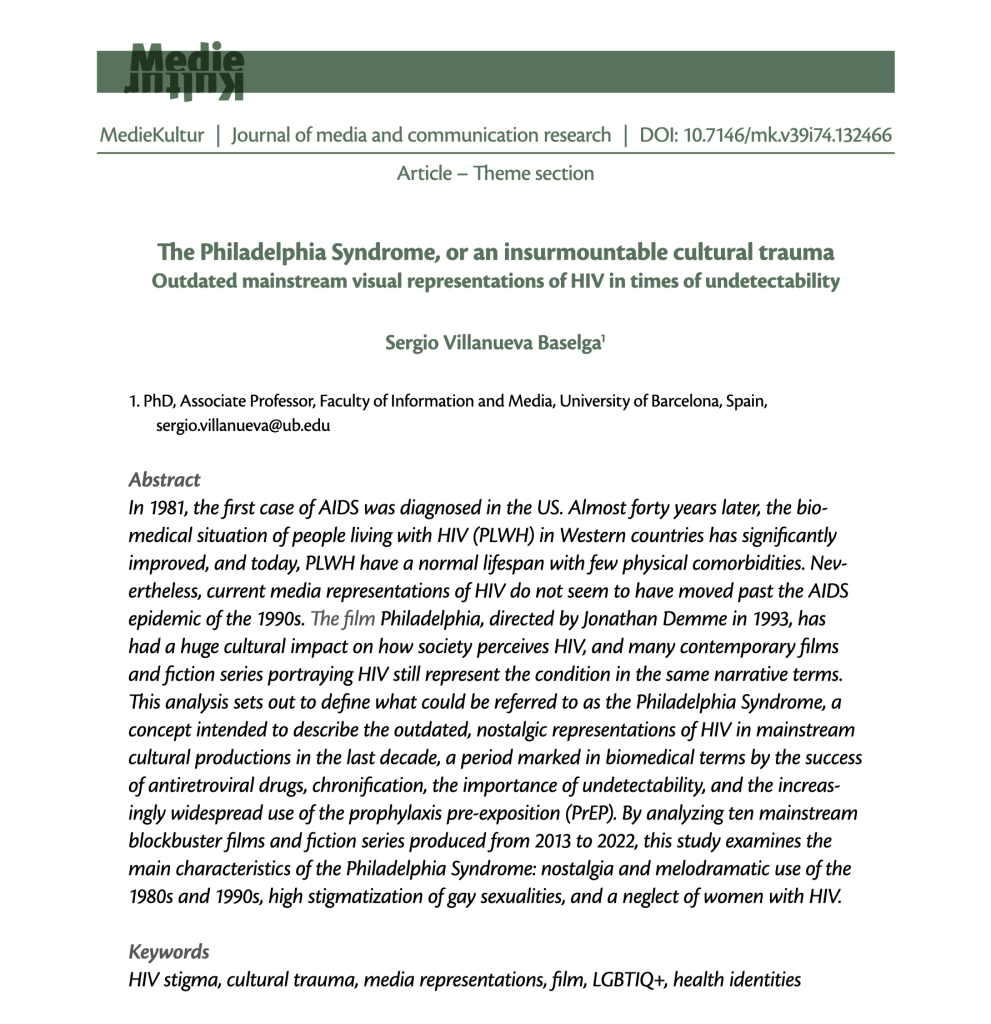Villanueva Baselga, S. (2023). The Philadelphia Syndrome, or an insurmountable cultural trauma: Outdated mainstream visual representations of HIV in times of undetectability. MedieKultur: Journal of Media and Communication Research, 39(74), 146–163. https://doi.org/10.7146/mk.v39i74.132466
New publication by Sergio Villanueva “The Philadelphia Syndrome, or an insurmountable cultural trauma: Outdated mainstream visual representations of HIV in times of undetectability.”
In 1981, the first case of AIDS was diagnosed in the US. Almost forty years later, the biomedical situation of people living with HIV (PLWH) in Western countries has significantly improved, and today, PLWH have a normal lifespan with few physical comorbidities. Nevertheless, current media representations of HIV do not seem to have moved past the AIDS epidemic of the 1990s. The film Philadelphia, directed by Jonathan Deeme in 1993, has had a huge cultural impact in how society perceives HIV, and many contemporary films and fiction series portraying HIV still represent the condition in the same narrative terms. This analysis sets out to define what could be referred to as the Philadelphia Syndrome, a concept intended to describe the outdated, nostalgic representations of HIV in mainstream cultural productions in the last decade, a period marked in biomedical terms by the success of antiretroviral drugs, chronification, the importance of undetectability, and the increasingly widespread use of the prophylaxis pre-exposition (PrEP). By analyzing ten mainstream blockbuster films and fiction series produced from 2013 to 2022, this study examines the main characteristics of the Philadelphia Syndrome: nostalgia and melodramatic use of the 1980s and 1990s, high stigmatization of gay sexualities, and a neglect of women with HIV.








